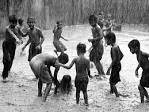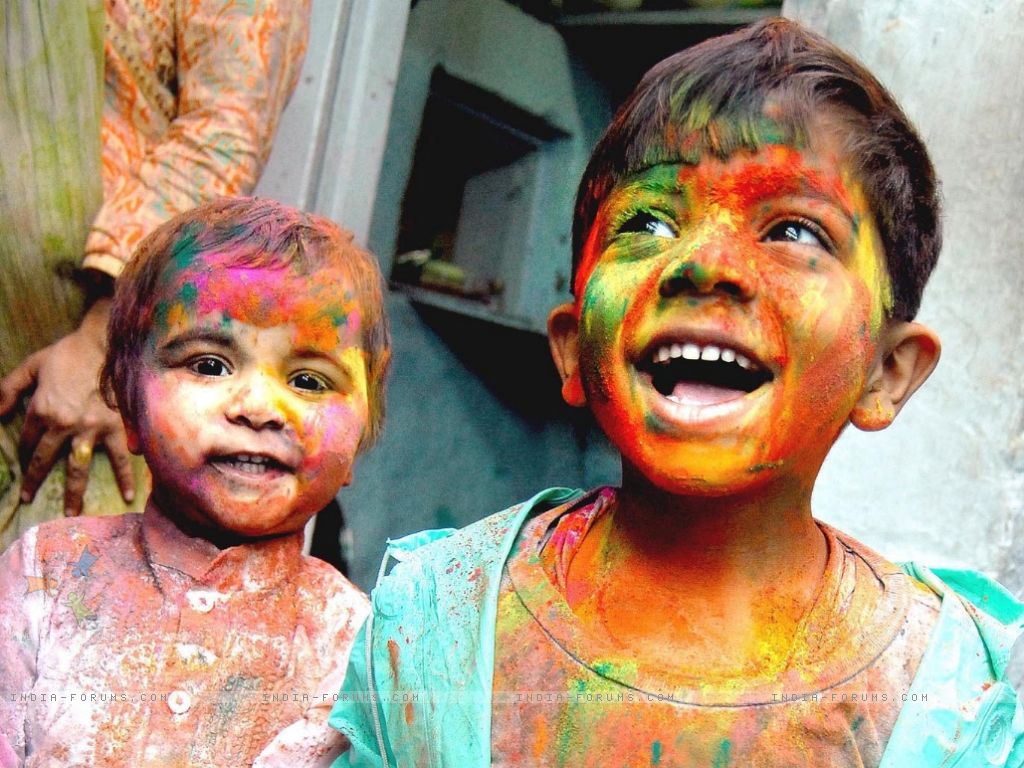“The child is father of the man” wrote William Wordsworth in one of his immortal poems. This poetic paradox offers much truth. Childhood is the oldest part of our life and precedes everything that comes after it. Yet in many respects our childhood is not only the oldest part of our life, it is also the wisest. For what is wisdom, if not a shortcut to happiness? And who is always happy, if not an innocent child? If we would learn to value the innate wisdom of children, the world would soon become a much better and happier place. Here are five things we can learn from children.
1. Live in the heart
 One of the main differences between children and adults is that adults live in the mind, whereas children live in the heart: That is why they are so cheerful, optimistic and full of energy. The heart is the source of joy, love, peace and oneness. It is also the fount of spontaneity. Because children live in the heart, they are always spontaneous. They do not suffer from self-doubt and insecurity the way adults do. Children charm us precisely because they are all heart. They inspire us to go deep within and bring our own heart-qualities to the fore. This we can do through prayer and meditation. If we unearth our forgotten childlike heart we will discover true and lasting happiness.
One of the main differences between children and adults is that adults live in the mind, whereas children live in the heart: That is why they are so cheerful, optimistic and full of energy. The heart is the source of joy, love, peace and oneness. It is also the fount of spontaneity. Because children live in the heart, they are always spontaneous. They do not suffer from self-doubt and insecurity the way adults do. Children charm us precisely because they are all heart. They inspire us to go deep within and bring our own heart-qualities to the fore. This we can do through prayer and meditation. If we unearth our forgotten childlike heart we will discover true and lasting happiness.
2. Be in the moment
 One of the reasons children are often so happy is that they live fully in the present moment. When a child plays with a toy, his toy becomes his whole world. He has eyes for nothing else. As adults our mind is always roaming, thinking of the past or the future. Rarely it is in the here and now. But that’s where life is happening. Past and future are both illusions. As a wise person once wrote: “Yesterday is history. Tomorrow is a mystery. Today is a gift. That is why it is called the present.” Children teach us that happiness lies nowhere else but in the here and now.
One of the reasons children are often so happy is that they live fully in the present moment. When a child plays with a toy, his toy becomes his whole world. He has eyes for nothing else. As adults our mind is always roaming, thinking of the past or the future. Rarely it is in the here and now. But that’s where life is happening. Past and future are both illusions. As a wise person once wrote: “Yesterday is history. Tomorrow is a mystery. Today is a gift. That is why it is called the present.” Children teach us that happiness lies nowhere else but in the here and now.
3. Have faith
 To a child his parents are his all, his entire world. A child feels that his parents are perfect. That is why he has implicit faith in them. His parents are the source of all wisdom, and by listening to his parents he gets abundant joy. He knows he does not have to worry because his parents protect him and take care of him. Because of his simple faith, the child is always joyful and happy. When we become spiritual seekers, we come to realize that we have a cosmic, divine Mother and Father, who take care of us at every moment. We can rely on these divine Parents for everything, just as we relied on our earthly parents in our childhood. We can regain that spontaneous feeling of faith by remembering the innate faith we had in our parents when we were children. Faith gives us confidence, and confidence brings joy.
To a child his parents are his all, his entire world. A child feels that his parents are perfect. That is why he has implicit faith in them. His parents are the source of all wisdom, and by listening to his parents he gets abundant joy. He knows he does not have to worry because his parents protect him and take care of him. Because of his simple faith, the child is always joyful and happy. When we become spiritual seekers, we come to realize that we have a cosmic, divine Mother and Father, who take care of us at every moment. We can rely on these divine Parents for everything, just as we relied on our earthly parents in our childhood. We can regain that spontaneous feeling of faith by remembering the innate faith we had in our parents when we were children. Faith gives us confidence, and confidence brings joy.
4. Never give up!
 When a child is learning how to walk, he takes a few steps and then falls down. Immediately he gets up, walks a few steps and falls down again. But although he may fall down a hundred times before he finally learns how to walk, the child does not feel that it has failed when it falls down. He knows that falling down is part of the process of learning how to walk. Because his so-called failures do not discourage him, the child continues trying until he is successful. We can all learn from this example by taking our so-called failures as stepping stones to our ultimate success. “Failure is the fast approaching train
of the greatest success,” Sri Chinmoy wrote. If we take a “never give up” attitude, we can be successful in anything we undertake. Since we all learned how to walk, we all mastered this attitude at a very tender age. Let the child again be the father of the man.
When a child is learning how to walk, he takes a few steps and then falls down. Immediately he gets up, walks a few steps and falls down again. But although he may fall down a hundred times before he finally learns how to walk, the child does not feel that it has failed when it falls down. He knows that falling down is part of the process of learning how to walk. Because his so-called failures do not discourage him, the child continues trying until he is successful. We can all learn from this example by taking our so-called failures as stepping stones to our ultimate success. “Failure is the fast approaching train
of the greatest success,” Sri Chinmoy wrote. If we take a “never give up” attitude, we can be successful in anything we undertake. Since we all learned how to walk, we all mastered this attitude at a very tender age. Let the child again be the father of the man.
5. Play the game of life
 To children, everything is a game. And their game is played purely for enjoyment. Children are not concerned with winning or losing, they only want to have joy. By watching children play, we can learn something valuable: Life itself is a game in which we are the players. When we take life too seriously, we often suffer and feel miserable. But if we realize that life is a game, we can see things in perspective. The purpose of a game is not winning or losing, but playing well and having fun. So we will not be discouraged and depressed when we experience failure. And conversely, we will not be bloated with pride and arrogance if we are successful. We will take both failure and success as valuable experience, teaching us how to play the game of life well. Like children we will play for the sake of playing. Therein lies the secret key to enduring happiness.
To children, everything is a game. And their game is played purely for enjoyment. Children are not concerned with winning or losing, they only want to have joy. By watching children play, we can learn something valuable: Life itself is a game in which we are the players. When we take life too seriously, we often suffer and feel miserable. But if we realize that life is a game, we can see things in perspective. The purpose of a game is not winning or losing, but playing well and having fun. So we will not be discouraged and depressed when we experience failure. And conversely, we will not be bloated with pride and arrogance if we are successful. We will take both failure and success as valuable experience, teaching us how to play the game of life well. Like children we will play for the sake of playing. Therein lies the secret key to enduring happiness.

